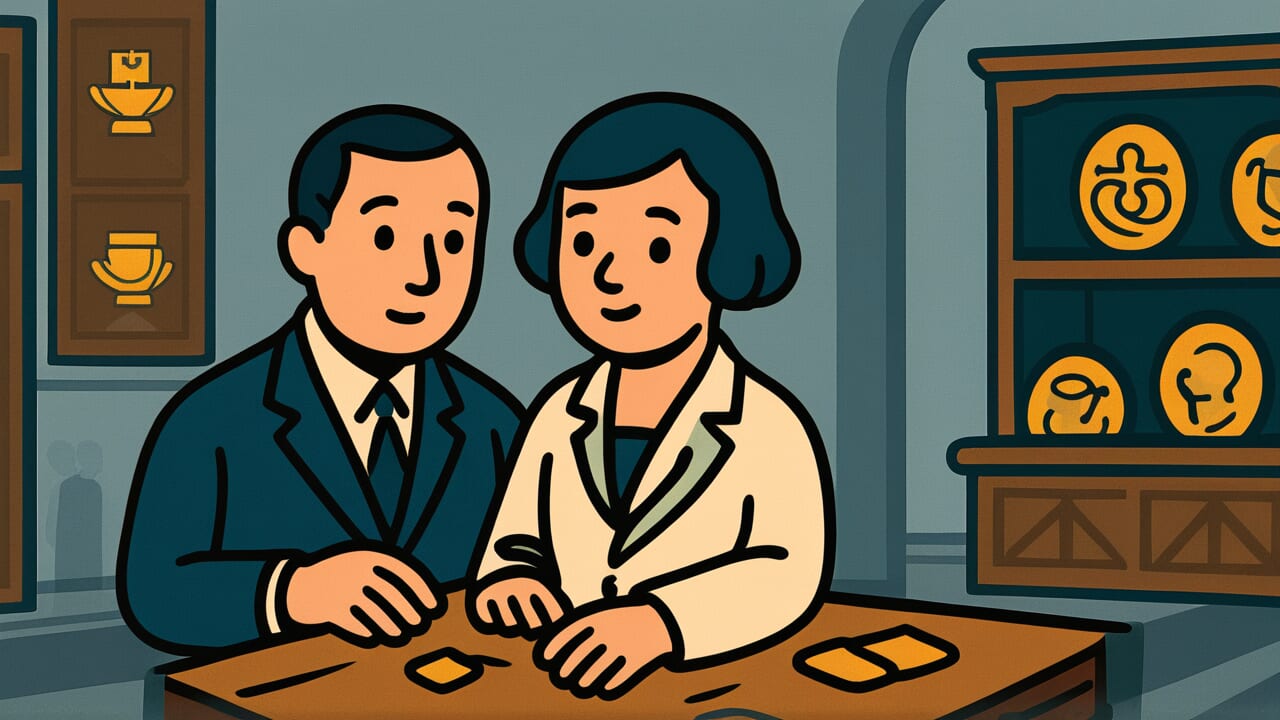How to Read “A child of a thousand gold does not die in the marketplace”
Senkin no ko wa ichi ni shisezu
Meaning of “A child of a thousand gold does not die in the marketplace”
“A child of a thousand gold does not die in the marketplace” means that children from wealthy families do not die in dangerous places.
Children born into families with money don’t need to take dangerous jobs. They have no reason to turn to crime. They never have to set foot in risky places.
Because of this, they rarely face situations that could cost them their lives. This proverb points out the reality that economic wealth acts as a shield protecting people’s safety and lives.
People use this saying when discussing the relationship between wealth and safety. It also comes up when talking about how the environment you’re born into affects your life.
Even today, this phrase deeply expresses how economic inequality directly impacts quality of life and safety in society.
Origin and Etymology
This proverb is believed to come from the ancient Chinese text “Records of the Grand Historian” (Shiji). The expression “A child of a thousand gold does not die in the marketplace” appears in this work and was later transmitted to Japan.
“A thousand gold” means enormous wealth. “The marketplace” refers to the market, a public place where people gathered.
In ancient China, the marketplace was not only a place for trade. It was also where punishments were carried out. Criminals were often executed publicly there, making the marketplace a place where danger lurked nearby.
This proverb shows the social reality that children from wealthy families never needed to go near such dangerous places.
Rich children didn’t have to work in hazardous locations or turn to crime. Even if they did commit a crime, their family’s wealth might help them avoid punishment or reduce it.
This saying captures the harsh reality of ancient society where the power of wealth greatly influenced people’s destinies.
It sharply points out the essence of class society, where safety in life varied dramatically based on status and wealth. This is why the expression has been passed down through generations.
Usage Examples
- The children from that family live lives completely removed from dangerous work, just like “a child of a thousand gold does not die in the marketplace”
- They say “a child of a thousand gold does not die in the marketplace,” but it’s sad that even your safety in life changes based on the environment you’re born into
Universal Wisdom
The proverb “A child of a thousand gold does not die in the marketplace” speaks to a timeless truth about human society: the deep connection between wealth and safety.
Why has this saying been passed down for thousands of years? Because it recognizes an unchanging reality. Economic prosperity holds power not just for material satisfaction, but for protecting life itself.
All humans seek safety. But whether you can obtain that safety depends heavily on the environment you’re born into.
Children from wealthy families stay away from dangerous labor. They don’t need to turn to crime. They can avoid high-risk choices. This shows a difference in starting lines that exists before individual effort or talent even matters.
The weight of this proverb lies not in simple observation. It sharply points out structural inequality in society.
Our ancestors saw through the cycle where wealth guarantees safety across generations while poverty invites danger. This insight hasn’t faded with time.
In fact, as inequality grows today, this truth becomes even more relevant. It’s wisdom that captures a fundamental challenge of human society in simple words.
When AI Hears This
People often think wealthy children avoid danger simply because money buys safety. But actually, a much more complex mechanism is at work. Risk management research calls this a “defense in depth system.”
Take airplane accident prevention. It doesn’t rely only on pilot skill. There are multiple layers: mechanic inspections, air traffic control monitoring, automatic warning systems. If one fails, the next layer protects you.
Wealthy children have the same kind of protection. First, quality education gives them strong risk judgment skills. Next, networks of lawyers and doctors catch problems early. Their social credibility also means police and government tend to respond quickly.
In other words, invisible hands correct their course multiple times before they even approach danger.
What’s interesting is that this protection system rarely shows up in statistics. When a poor child has an accident, it’s recorded as “bad luck.”
But when a wealthy child avoids the same danger, nothing gets recorded because “nothing happened.” This is called survivorship bias.
We see only success stories and judge them as “good luck.” But actually, multiple invisible protective layers functioned together. Even today, having or lacking this multilayered structure fundamentally changes how safe your life is.
Lessons for Today
This proverb teaches us the importance of recognizing the power of environment. When looking at your own life or others’ lives, you need to understand something beyond individual effort.
Invisible forces from the environment where a person is placed are also at work.
At the same time, this lesson contains hope. If we can do something for the next generation, it’s to create a safe and prosperous environment for them.
This doesn’t necessarily mean leaving behind enormous wealth. Investment in education, healthy lifestyle habits, and stable relationships are invisible assets. These also have the power to keep children away from danger.
Thinking about society as a whole, this proverb asks us about the importance of aiming for a society where all children can avoid “dying in the marketplace.”
A society where safety varies greatly based on the environment you’re born into cannot be called healthy.
Start with small actions you yourself can take to create a society where more people can live safely. That is the most important message this ancient proverb throws at the modern world.



Comments